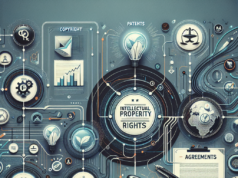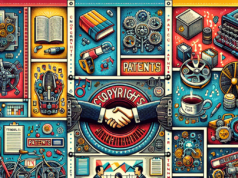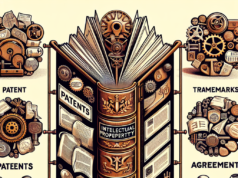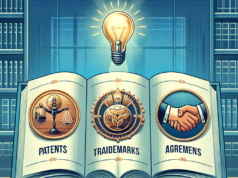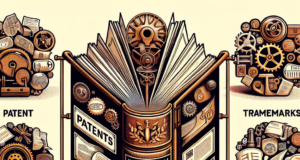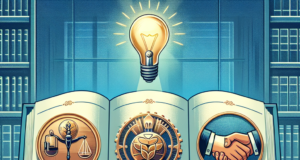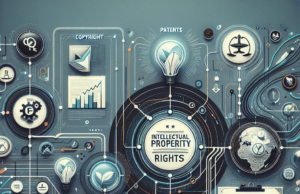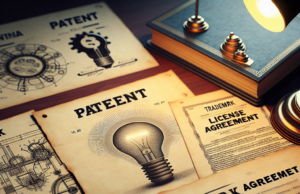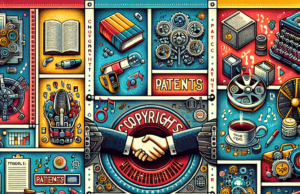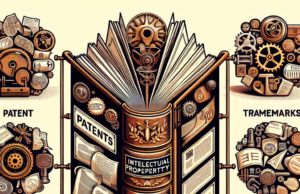
In an era where music is more accessible than ever, the complexities surrounding music rights have become increasingly pronounced. As artists, producers, and record labels navigate the intricate web of ownership and licensing, disputes often arise, leading to significant legal battles and financial repercussions. This article delves into the chaotic world of music rights disputes, exploring the underlying issues, notable cases, and the impact of technology on the industry.
Understanding Music Rights: An Overview of Ownership and Licensing Issues
Music rights encompass a broad spectrum of ownership and licensing issues that dictate how music is created, distributed, and consumed. At its core, music rights can be divided into two primary categories: performance rights and mechanical rights. Performance rights pertain to the public performance of a song, while mechanical rights involve the reproduction of music in various formats, such as CDs or digital downloads. The ownership of these rights can be complex, often involving multiple stakeholders, including songwriters, performers, producers, and record labels. This intricate web of ownership can lead to confusion and disputes, particularly when rights are not clearly defined or communicated among parties involved.
The Role of Copyright in Music: Protecting Creators and Their Works
Copyright plays a crucial role in the music industry, serving as a legal framework that protects the rights of creators and their works. Under copyright law, creators are granted exclusive rights to reproduce, distribute, and publicly perform their music, ensuring they receive compensation for their efforts. This protection is vital for fostering creativity and innovation within the industry, as it incentivizes artists to produce new works. However, the complexities of copyright law can also lead to disputes, particularly when it comes to the interpretation of ownership and the duration of rights. As music continues to evolve, the need for clear and comprehensive copyright regulations becomes increasingly important to safeguard the interests of all parties involved.
Common Causes of Disputes: Misunderstandings and Legal Complexities in Music Rights
Disputes over music rights often stem from misunderstandings and the inherent legal complexities associated with ownership and licensing. One common issue arises when multiple parties claim rights to a single piece of music, leading to conflicts over royalties and usage permissions. Additionally, the lack of standardized contracts and agreements can result in ambiguity regarding the distribution of rights and responsibilities. Miscommunication between artists, producers, and record labels can further exacerbate these issues, leading to protracted legal battles that can drain resources and damage reputations. As the music industry continues to evolve, addressing these common causes of disputes is essential for fostering a more collaborative and transparent environment.
Case Studies: Notable Music Rights Disputes That Shook the Industry
Several high-profile music rights disputes have captured the attention of the industry and the public alike, highlighting the complexities and stakes involved. One notable case is the ongoing legal battle between Pharrell Williams and Marvin Gaye’s estate over the song “Blurred Lines.” The case centered on allegations of copyright infringement, with the court ultimately ruling in favor of Gaye’s estate, awarding them millions in damages. Another significant dispute involved Taylor Swift and her former label, Big Machine Records, over the ownership of her master recordings. Swift’s public outcry over the sale of her catalog to a new owner sparked widespread debate about artists’ rights and the control they have over their own work. These cases underscore the importance of clear agreements and the potential consequences of disputes in the music industry.
The Impact of Technology: How Streaming Services Complicate Music Rights Management
The rise of streaming services has revolutionized the way music is consumed, but it has also introduced new challenges in music rights management. With platforms like Spotify and Apple Music dominating the market, the distribution of royalties has become increasingly complex. Artists often find themselves navigating a labyrinth of licensing agreements and payout structures that can vary significantly between platforms. Additionally, the rapid pace of technological change has outstripped existing copyright laws, leaving many artists uncertain about their rights in the digital landscape. As streaming continues to grow, the industry must adapt to these changes and develop more equitable systems for compensating creators.
Future Directions: Proposed Solutions to Mitigate Music Rights Disputes in the Industry
To address the ongoing challenges surrounding music rights disputes, several proposed solutions have emerged. One potential approach is the establishment of standardized contracts that clearly outline the rights and responsibilities of all parties involved in a music project. This could help reduce misunderstandings and provide a clearer framework for resolving disputes. Additionally, the implementation of blockchain technology has been suggested as a means of creating a transparent and immutable record of music rights ownership, which could streamline licensing processes and ensure fair compensation for artists. Furthermore, industry stakeholders are increasingly advocating for reforms to copyright laws that reflect the realities of the digital age, ensuring that creators are adequately protected in an evolving landscape. By embracing these solutions, the music industry can work towards a more equitable and harmonious future.
The world of music rights is fraught with challenges, but understanding the underlying issues and exploring potential solutions can pave the way for a more collaborative and transparent industry. As artists continue to create and innovate, it is imperative that the frameworks governing music rights evolve to protect their interests and foster a thriving creative environment. By addressing the complexities of ownership and licensing, the music industry can mitigate disputes and ensure that all stakeholders are fairly compensated for their contributions.


